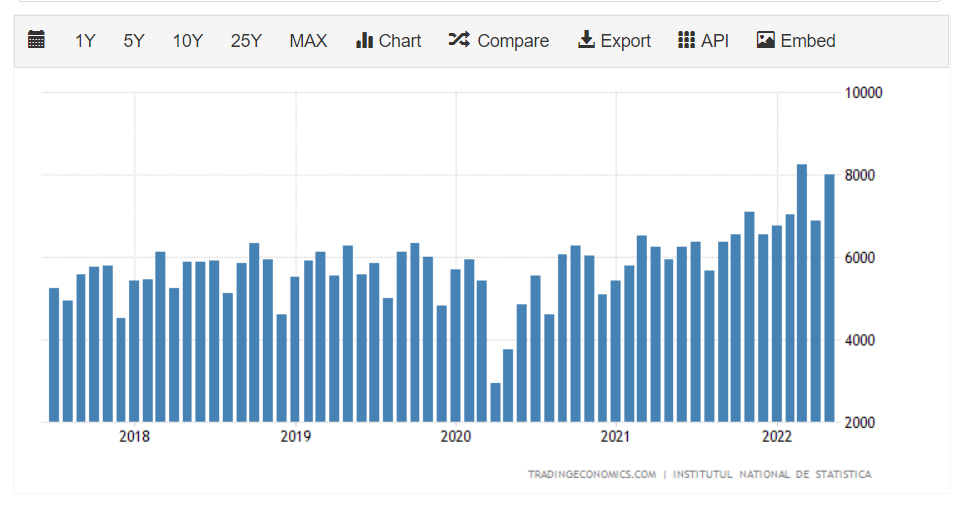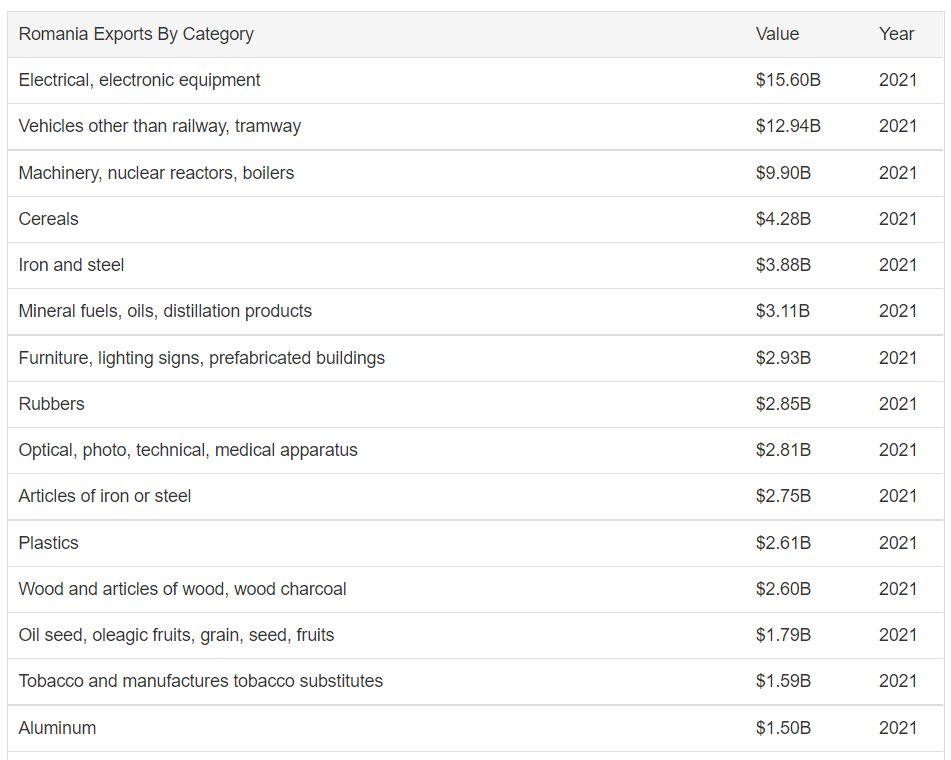Romania

Romania has been a member of the European Union since 2007. Within the scope of membership, it has fully complied with the Common Trade Policy together with the European Union Acquis. It applies the EU’s Common Customs Tariff (OGT) to the imports of industrial products from third countries outside the EU, and the World Trade Organization’s commitments in agricultural products, except for the products that the relevant countries have compromised.
It is recommended that foreign companies that will trade with Romania cooperate with a consultant or sourcing company familiar with Romanian export-import processes, familiar with the product group to be supplied and the market. Although Romania is a member of the EU, it still has a fragile economy and a domestic market where trade rules are kept flexible. If you are looking for a supplier from Romania, it is safest to work with a sourcing company for market research, supplier selection, negotiation procurement, and import processes.
Romania Demographics:
⦁ Population 19.5 million
⦁ Language Romanian
⦁ Area of 238,391 Km2
⦁ Capital Bucharest
⦁ Major Cities Iasi, Timisoara, Constanta, Cluj-Napoca, Crai
⦁ Currency EUR / Lei
⦁ Major International Organizations of which it is a Member
⦁ EU (European Union), BSEC (Black Sea Economic Cooperation), (EFTA), the Central European Free-trade Area (CEFTA)

Overview Romania
Romania, which is located in the southeast of Europe and is the second largest market in Central and Eastern Europe after Poland, has experienced a solid rural migration with the industrialization process. According to IMF data, Romania is the 42nd largest economy in the world among 194 countries as of 2020.
Romania ranks 40th in world exports with an export of 88.3 billion dollars in 2019; It ranks 37th in world imports with an import of 116.4 billion dollars. While the foreign trade volume of Romania in 2020 was 204 billion dollars, it had a foreign trade deficit of 28.1 billion dollars.
Romania Foreign Trade Legislation (Import – Export Regime)
According to the Romanian customs legislation, the products arriving in the customs area gain definite or temporary export or import status. Other documents required to be submitted to the Customs Administration along with the Customs Declaration are as follows:
⦁ Transport document or document containing entry/exit information by the carrier,
⦁ The original or copy of the invoice or a document showing the customs value on the consignment,
⦁ Declaration of the customs value,
⦁ Movement documents that will provide an exemption from customs duty (example: EUR 1)

Romania Economy Key Sectors
Romania’s main export products are; parts for road vehicles, automobiles, insulated wires, cables, petroleum oils, electrical control distribution boards, panels, furniture for seating, new rubber tires, corn, wheat and meslin, telephone devices and air or vacuum pumps, air compressors .
Romania Strategic Market Entry Criteria
The Romanian Ministry of Economy and Trade is the central specialized public institution that implements the government’s policy in the fields of economic growth, industry, energy, natural resources, defense production, European integration, foreign trade, and economic relations.
There is no restriction for importing from Romania, but customs duties are applied to exports to Romania from non-EU countries. Although there are some restrictions for non-EU citizens who want to invest in Romania, the Romanian government provides various facilities to attract foreign capital. According to 2020 data, the number of companies with foreign capital in Romania was recorded as 230,976. Due to its cheap labor force and being an EU member, Romania is a country of choice for manufacturers who want to trade with other EU countries. The total capital of these companies is around 64 Billion USD.
Supply from Romania: Sourcing
Romania has not yet overcome the structural problems that will ensure fast and fair trade. Many legal regulations and harmonization laws were enacted in the EU accession process, but there are still problems in implementation.
Sourcing services will be provided to companies looking for suppliers in Romania, which will enable them to trade more safely and faster. It is seen that many foreign investors who set up businesses in Romania after EU membership received support from consulting firms.
